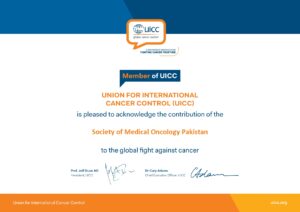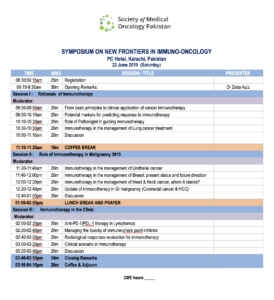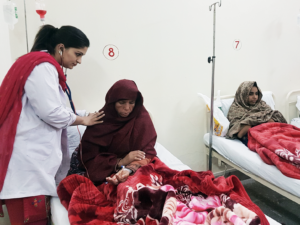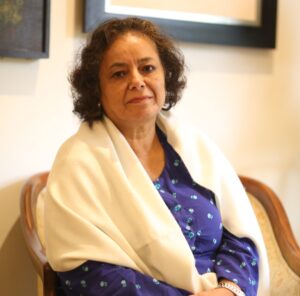Peripheral T-cell lymphomas (PTCL), a subdivision of T-cell non-Hodgkin lymphomas (NHLs) are a diverse group of disorders that carry a poor prognosis.
It is a heterogeneous group of aggressive NHL, accounting for approximately 10% of all NHL cases in the USA and Europe and as high as 24% in parts of Asia.
T-cell lymphomas have traditionally been treated much like the B-cell lymphomas, with a combination chemotherapy regimen. CHOP (cyclophosphamide, doxorubicin, vincristine, and prednisone) was the most widely used, although there were no randomized studies that proved that it was the best therapy. A retrospective meta-analysis of 2912 patients treated with CHOP or CHOP-like regimens reported a 5-year OS of 37%.

Our knowledge of the expected outcomes for patients with PTCL is largely based on 2 large retrospective series: the International T-Cell Project (ITCP) and the British Columbia Cancer Agency (BCCA) series, which reported outcomes on 1314 cases and 199 cases, respectively. The ITCP and BCCA series are useful in informing us on the expected survival outcomes with CHOP in PTCL. In the ITCP 85% of patients received CHOP-based therapy, and in contrast to ALK positive ALCL where the 5-year failure-free survival (FFS) was 60%, the 5-year FFS for PTCL-NOS, AITL, and ALK-negative ALCL were only 20%, 18%, and 36%, respectively. Similar outcomes were observed in the BCCA series with 5-year progression-free survival (PFS) of 29%, 13%, and 28% for PTCL-NOS, AITL, and ALCL, respectively
Our knowledge of the expected outcomes for patients with PTCL is largely based on 2 large retrospective series: the International T-Cell Project (ITCP) and the British Columbia Cancer Agency (BCCA) series, which reported outcomes on 1314 cases and 199 cases, respectively. The ITCP and BCCA series are useful in informing us on the expected survival outcomes with CHOP in PTCL. In the ITCP 85% of patients received CHOP-based therapy, and in contrast to ALK positive ALCL where the 5-year failure-free survival (FFS) was 60%, the 5-year FFS for PTCL-NOS, AITL, and ALK-negative ALCL were only 20%, 18%, and 36%, respectively. Similar outcomes were observed in the BCCA series with 5-year progression-free survival (PFS) of 29%, 13%, and 28% for PTCL-NOS, AITL, and ALCL, respectively
As mentioned above for decades, CHOP has remained the most commonly used front-line regimen for previously untreated patients with peripheral T-cell lymphoma. With the exception of low IPI score (<2) ALK-positive systemic anaplastic large cell lymphoma, peripheral T-cell lymphomas are aggressive neoplasms with poor prognosis. Attempts to improve upon CHOP, primarily in single-arm or phase 2 studies, have been largely unsuccessful. Single drugs, such as alemtuzumab, pralatrexate, and denileukin diftitox, have been added to CHOP or to a CHOP-like backbone without any clear benefit and often excess toxicity.
Only few randomized studies that guide therapy in PTCL are available and they are underpowered and do not give clear conclusions, with management approaches primarily derived from phase 2 studies, retrospective series, and clinical experience. Moreover we know that CD30 is universally expressed and is pathognomonic in systemic anaplastic large cell lymphoma and as per previous studies we know that it is expressed with the following ratio:
- 58–64% in PTCL-NOS
- 43–63% in angioimmunoblastic T-cell lymphoma,
- 55% in adult T-cell leukaemia or Lymphoma
- 0–100% in enteropathy-associated T-cell lymphoma
And from our prior knowledge we knew that Brentuximab vedotin is an antibody–drug conjugate compose of an anti-CD30 monoclonal antibody conjugated by a protease-cleavable linker to the microtubule-disrupting drug monomethyl auristatin E. Therefore based on the encouraging activity and manageable safety profile observed in a phase 1 trial combining brentuximab vedotin with cyclophosphamide, doxorubicin, and prednisone (CHP [CHOP without vincristine] to eliminate the risk of overlapping neurotoxicity that could be worsened by delivering two microtubule-disrupting drugs), the double-blinded phase 3 ECHELON-2 trial was initiated to compare the efficacy and safety of brentuximab vedotin in combination with CHP (A+CHP) with standard CHOP for the treatment of previously untreated patients with CD30-positive peripheral T-cell lymphoma.
The results were quite promising, the progression-free survival HR was 0·71 ([95% CI 0·54–0·93]; p=0·0110), equating to a 29% reduction in the risk of a progression-free survival event for the A+CHP group versus the CHOP group. After a median follow-up of 36·2 months (95% CI 35·9–41·8), the median progression-free survival in the A+CHP group was longer than that of the CHOP group (48·2 months vs 20·8 months [12·7–47·6]).The 3-year progression-free survival was 57·1% (49·9–63·7) for the A+CHP group compared with 44·4% (37·6–50·9) for the CHOP group. Treatment with A+CHP reduced the risk of death by 34% compared with CHOP (HR 0·66 [95% CI 0·46–0·95], p=0·0244.
Therefore we may conclude that in untreated peripheral T-cell lymphoma, A+CHP showed superior progression-free survival and significantly longer overall survival than CHOP. Treatment with A+CHP led to a 29% reduction in the risk of a progression-free survival event and a 34% lower risk of death, with a 77% probability of survival at 36 months. Most importantly, these improvements in survival came without an observed increase in toxicity. Hence in NCCN Jan 2019 updates brentuximab vedotin in combination with CHP has been added as category 1 recommendation for first line therapy of ALCL PTCL and category 2A for other histologies.




















































